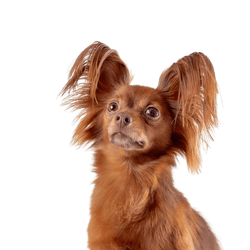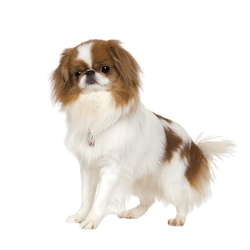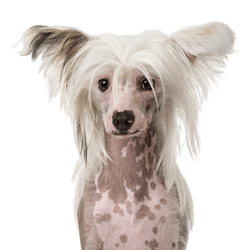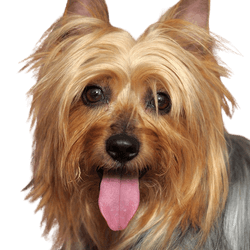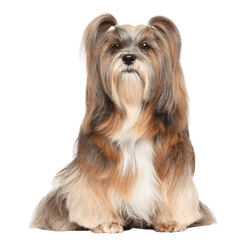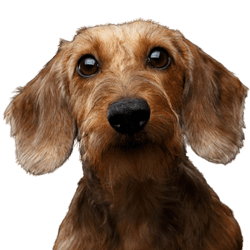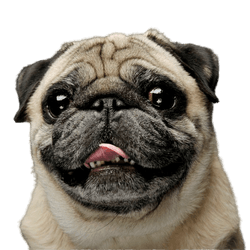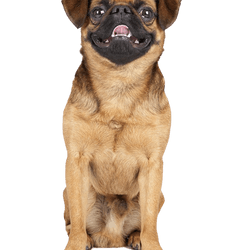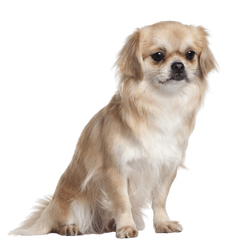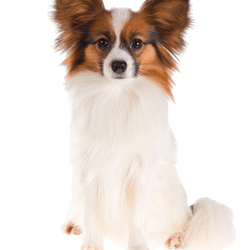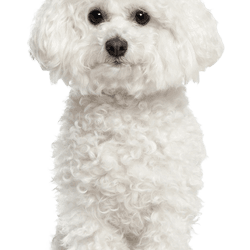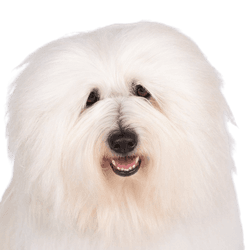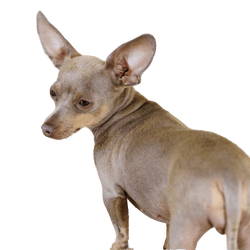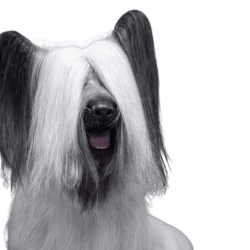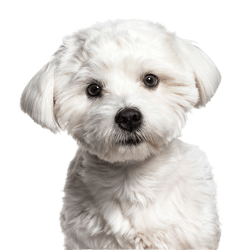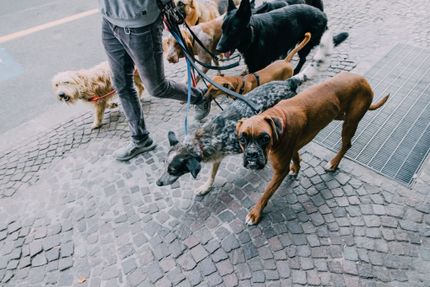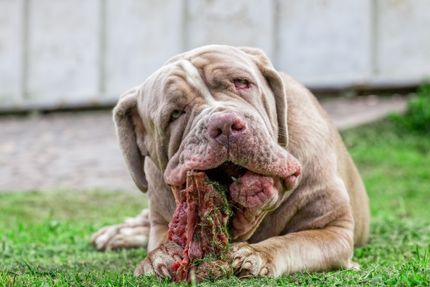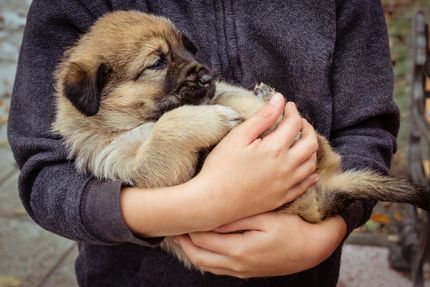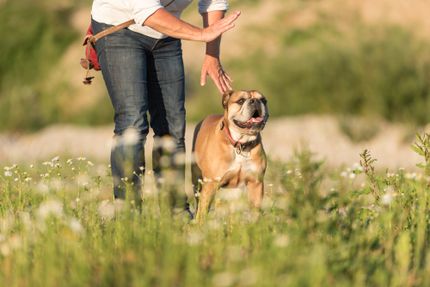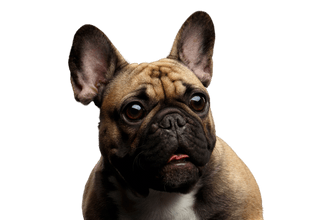
French Bulldog Breed description: Character & Co
French Bulldog
Facts & Origin
The roots of this dog breed lie in Great Britain. The Frenchie originates from the English Bulldog, which was originally bred as a stag hound or fighting dog used in bullfighting. When dog fights were prohibited, some workers brought the animals to France. The people did not want aggressive, but compatible and small dogs.
Some breeders crossed the popular miniature bulldogs with terriers, griffons and pugs. The result of these crossings was the French Bulldog under which name they are still known today. In 1898 the Société Centrale Canine took the step to recognise the Bouledogue Francaise as an independent dog breed.
Special breed characteristics of the French Bulldog
Due to its shortened respiratory tract, this four-legged friend has an increased risk of developing asthma. In order to avoid infections, the belly area, which is only sparsely covered with fur, must be protected from extreme freezing temperatures. On a contrary point, this dog hardly tolerates the blazing sun in summer.

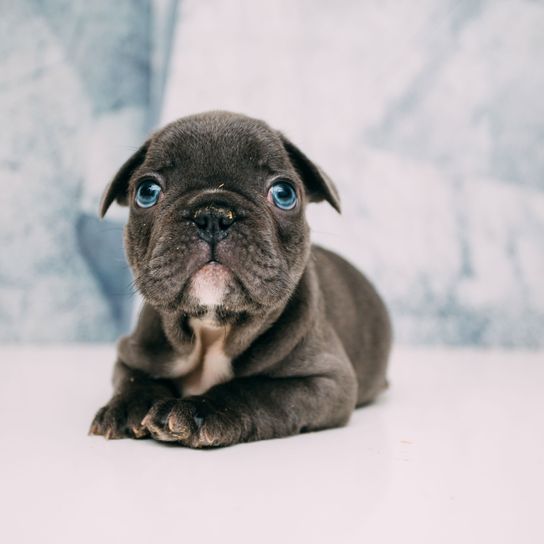
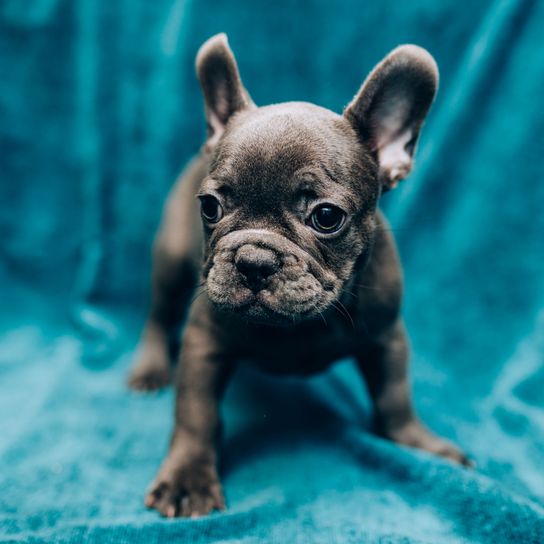

| Alternate Name | Frenchie |
| Origin | France |
| Life expectancy | 10 - 12 years |
| Care requirements | low-maintenance |
| Activity level | average |
| FCI group | Small Molossian type Dogs |
| AKC group | non-sporting group |
| KC group | utility group |
French Bulldog mixes
Attitude, character and temperament of the breed
Typical characteristics of the Frenchie
If you want to buy a French Bulldog, don't be intimidated by their looks. The breed has a very grumpy looking face, but it is of a very gentle nature. Because of their attentiveness this lively dog makes for an excellent watchdog. They are especially fond of children, because playing around with little ones in a "pack" offers them a great variety of activities. They can also live out their innate protective instinct and the urge to move is not neglected at the same time. Representatives of this breed make a pleasant family dog, which is easy to train because of its intelligence and ability to pick up on things easily. It is often referred to as a dog well suited for first-time owners.
If this four-legged friend already joins your family as a puppy, they will be able to get used to other pets more easily. If it is integrated into the family at a later point at the "peak of its life" they should get accustomed to their new home step by step and without overwhelming anyone involved in the process. The Frenchie can sometimes appear distanced and unimpressed towards unknown dogs.
Character
Usage
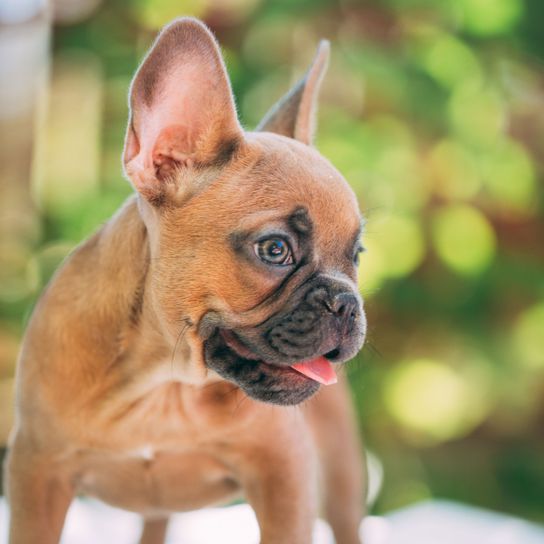
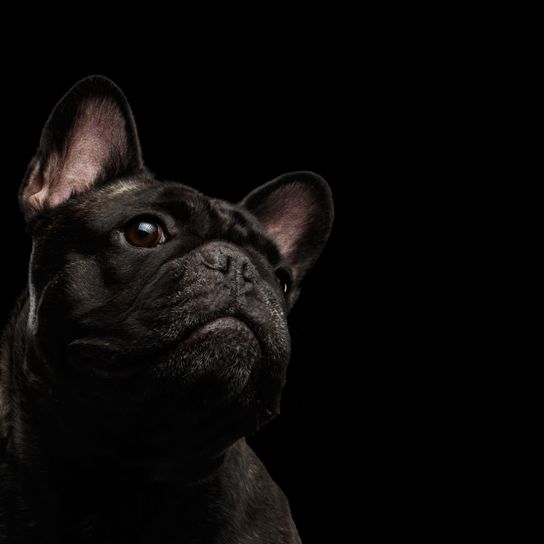
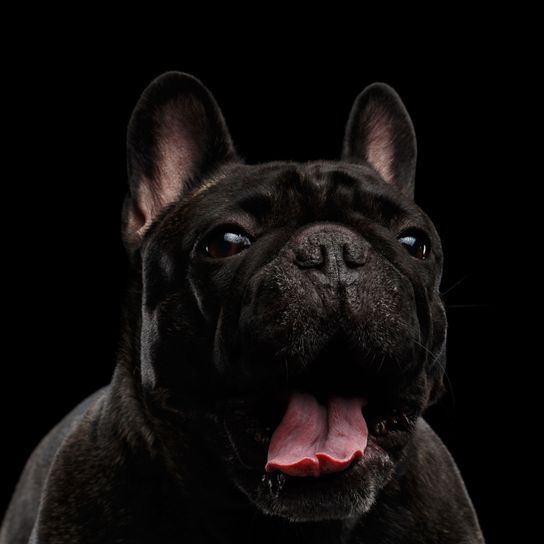
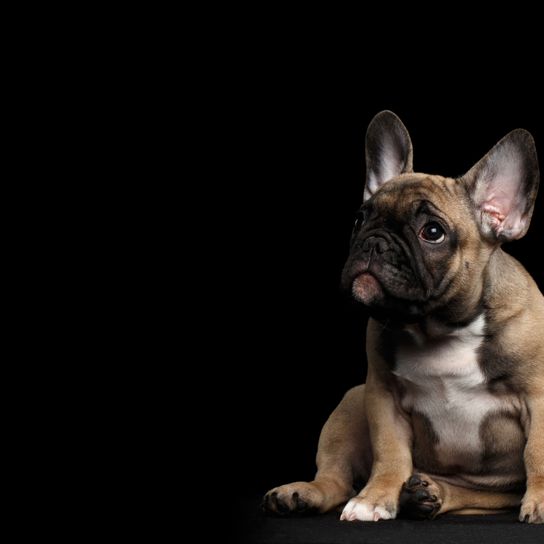

Health and breeding information
Breed typical diseases of the French Bulldog
These dogs groan, their eyes permanently water, their joints hurt - these are results of so-called torture breeding. Some dog owners see it as perfectly normal when their darling tries to keep up with them with their short legs and gets out of breath in the process. Even the "cute" snoring is by no means harmless. Questionable breeding aims and breed standards at competitions have led to the fact that this four-legged friend often faces lifelong suffering.
Due to their flat nose and the characteristic head shape (brachycephaly), this breed tends to be short of breath easily. Breathing difficulties often occur during physical exertion or high temperatures. Often only an operation can provide relief. Furthermore, allergies, wedge-shaped vertebra and herniated discs can occur. However, there are now also retro breeds that try to reverse breed their noses and elongate their legs, so that the dog ends up healthy but their character remains the same.
Breed or buy French Bulldogs?
Should you decide to breed this dog yourself, you must inform yourself sufficiently in advance. In this case, seek advice from competent breeders or ask a registered breeders' association for support. Further information can be found here: Your text to link...
When buying, you should never go to "dog multipliers". They are not trying to save the life of a French Bulldog, they are just looking to make profit. It is better to consult licensed breeders. They will answer all your questions. Make sure of the following:
- Your dog from the French Bulldog breeding has all vaccinations.
- It is chipped and dewormed. The examination of the litter acceptance was carried out by the responsible authority.
- The puppies have a friendly and lively nature and show no shyness.
- A proof of the parental animals is available. They should both have clear breathing.
- The puppy must not have a completely flat nose. (-> torture breeding!)
If these facts apply, you can agree to the purchase with a clear conscience. We wish you and your darling all the best for the future! A French Bulldog costs between 800 and 1500 Euro depending on the colouring. Very special colours like blue, lilac, cream and merle can cost up to 2500 Euro. There are also long-haired French Bulldogs that are called 'Fluffy'.


Appearance and coat of the Frenchie
The French Bulldog has a short, soft, dense and shiny coat without a warming undercoat. There are different colour variations:
- The colours black, white, fawn and dark brindle are among the more common ones.
- Sometimes there is also a light cream tinge.
- In specimens with dark fur, a white spot on the chest will develop throughout the first few years of their life.
The coat care of the short coat requires only a small amount of work. It is recommended to brush and groom the coat once or twice a week. During the change of coat you should comb your Frenchie more often. Persistent dirt can be removed by washing with a mild shampoo.
The symmetrical folds and wrinkles of the facial skin covering their broad head make their look appear slightly grumpy. This is down to genetics. However, the large and protruding eyes give most Bulldogs a cheerful and friendly impression.
Typical for a French Bulldog are the large, upright standing ears. They extend from the broad base of the ear to the tip of the ear and are often referred to as "bat ears".
Representatives of this breed have an average life expectancy of ten to twelve years
Size and weight of an adult Frenchie
Although the small French Bulldog with a height of 26 to 35 centimetres measured at the withers is considered a rather small dog breed, they have a robust physique nonetheless. Their weight varies between seven to eight kilograms. Females are a few centimetres smaller in size and weight.
As the breed tends to be slightly overweight, regular weight check-ins should already be carried out on French Bulldogs puppies. If the Bullies eat too much, they can develop extensive problems with their joints after only a few months.
The tail of the French Bulldog is very short and therefore often looks as if it had been cut off - or docked. This is not the case though. There are breeds, such as the French Bulldog, which have a stub tail which is down to breed specifics.
| Fur length | short |
| Fur | flat coated |
| Ear shape | Standing Ears |
| Tail | fanned out |
| Anatomy | muscular, rugged, massive, hefty |
| Size ♀ | 25 - 33 cm |
| Weight ♀ | 8 - 12 kg |
| Size ♂ | 25 - 33 cm |
| Weight ♂ | 8 - 14 kg |
| Suitable For | Beginner, Children, Seniors |
Colors
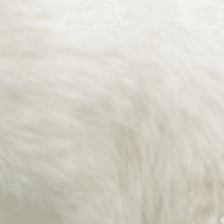
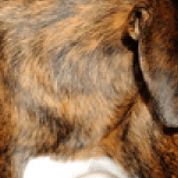
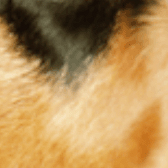
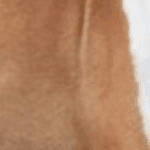
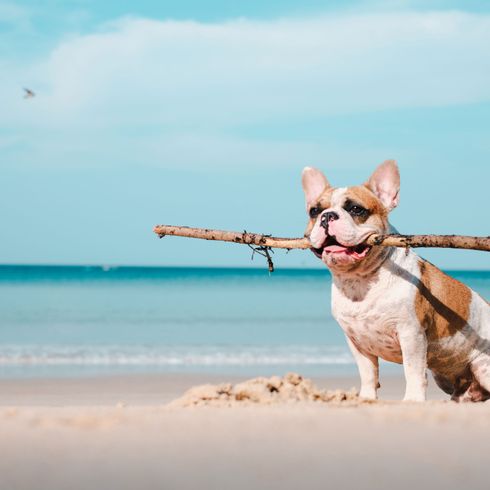
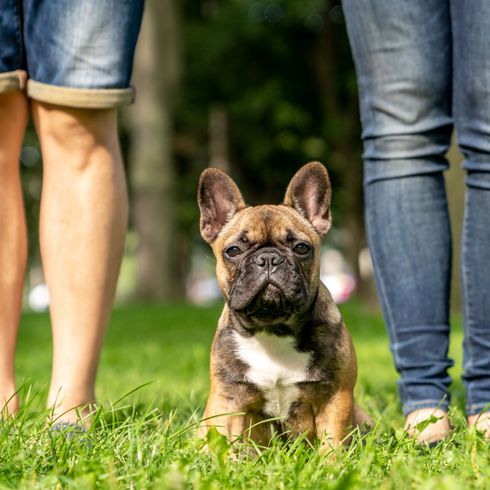
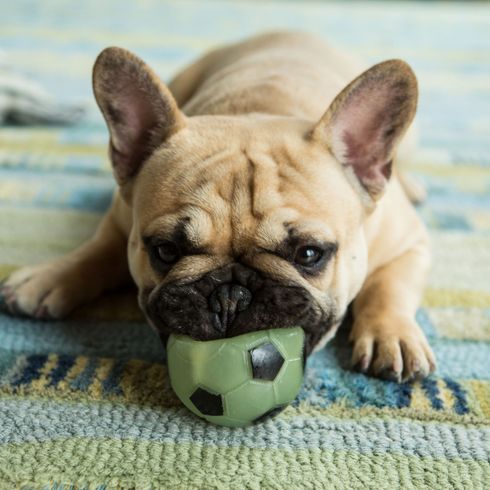
Known Diseases
Allergies
Can occur in a number of breeds, regardless of genetic makeup.
Breathing problems
Dogs with shortened muzzles can often experience respiratory problems.
Disc problems
Herniated disc in dogs (discopathy). Herniated discs or dachshund paralysis cause dogs severe pain.
FAQ
-
No. The French Bulldog is not a fighting dog or a listed dog.
-
A French Bulldog is considered a beginner dog and is well suited for families, single households and other active people and is considered easy to train.
-
A purebred puppy costs about 3500 Euro in the special color lilac. A normal coloring about 2500 Euro.
-
A French Bulldog is one of the torture breeds and has no nose. The ears are very large and are erected. The tail is stubby.
-
Unfortunately, this cannot be said. Bulldogs have an enormous bite force, but French bulldogs hardly due to their deformity in the jaw and the recessed nose.
Sources and relevant links
eDogs Magazin
Accessed on 16.01.2023
Gabriele Lehari (2004). Ulmers Großes Lexikon der Hunderassen. Ulmer.
Horst Hegewald-Kawich (2015). Hunderassen von A bis Z: Über 200 beliebte Rassen aus aller Welt. Gräfe und Unzer Verlag.
Embark
Accessed on 24.01.2023
Hans Räber (2014). Enzyklopädie der Rassehunde, Band 1. Kosmos.
Other small dogs
Useful Articles
You can find articles that might interest you in the dogbible blog to match your favorite breed.
Visit our magazineto stay up to date on dog trends.
To find out more, view our Privacy Policy
Find here the breed that suits you and find out what character traits it has. Here you can also learn more about the origin, size and weight of your favorite breeds.
Matching your favorite breed, you'll find articles that might interest you on the dogbible dog blog.
These foods are poison for dogs
MDR1 mutation - everything you need to know about it if you have a dog





